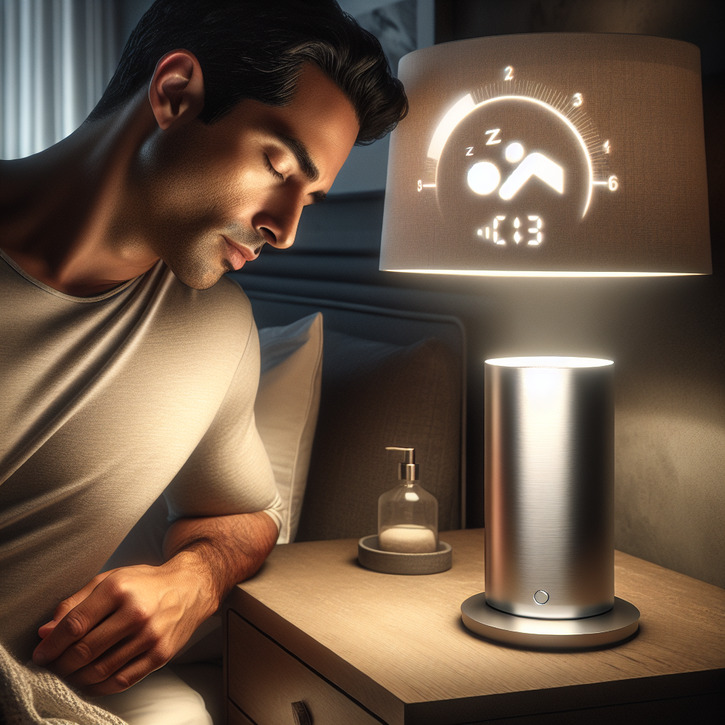Tech Solutions for Monitoring and Mitigating Sleep Issues

Tech Solutions for Monitoring and Mitigating Sleep Issues
Exploring Sleep Issues in the Digital Era
What Exactly Are Sleep Issues and Why Should We Care?
Let’s face it—our fast-paced world rarely gives us much time to catch our breath, let alone get enough shut-eye. Sleep issues aren’t just about tossing and turning a few nights here and there; they cover everything from having trouble drifting off to waking up repeatedly, and even include more serious conditions like sleep apnea. These problems can turn your mornings into a groggy mess and your days into sluggish ordeals, not to mention the long-term health risks if nothing gets done about them. They’re actually red flags that something bigger might be going on with your health, often caused by everyday stress, a noisy environment, or even bad habits. Digging into what sleep issues really are shows us why they deserve a top spot on our radar when it comes to overall well-being.
How Our Modern Lifestyles Can Throw Sleep Out of Whack
Our daily routines have morphed into a whirlwind of long work hours, endless screen time, and a constant digital connection, all of which can mess with our natural sleep cycle. Instead of winding down with a good book or a soothing routine, many of us are glued to our devices, delaying sleep and cutting down on the quality of our rest. Add in the constant ping of social media notifications and the pressure to be available 24/7, and it’s no wonder our sleep schedules can go haywire. Throw in the urban din, irregular work hours, and sky-high stress levels, and you’ve got quite the recipe for restless nights. With technology influencing nearly every part of our lives, understanding how these factors intermingle is key to taking back control of our sleep.
Where Technology Meets Sleep Troubles
Technology is kind of a double-edged sword when it comes to sleep. Sure, those endless hours in front of screens can throw off your sleep patterns, but on the flip side, tech has also armed us with some incredible tools to fight back against sleep disturbances. Today’s innovations—from smart sensors to wearable gadgets—don’t just track your sleep; they help identify the things that might be keeping you up at night. These high-tech tools can spot early signs of a sleep disorder and offer strategies to counteract them. Essentially, this tech-savvy approach is bridging the gap between old-school remedies and modern, data-powered solutions for better sleep health.
Monitoring Sleep Issues with Innovative Tech Tools
How Wearable Devices Are Taking the Guesswork Out of Sleep Tracking
Wearables, like smartwatches and fitness trackers, have slid into our everyday lives as handy sleep monitors. Equipped with all sorts of sensors to keep tabs on heart rate, movements, and even oxygen levels, these little gadgets make it easy to see what’s really happening over the course of the night. They work on the go, meaning you can keep living your daily life while they quietly record your sleep cycles, flagging disturbances and even hinting at early warning signs of sleep disorders. And the bonus? They often sync up with user-friendly mobile apps, where you can review detailed data and trends over time. It’s no surprise that as more folks embrace these tech tools, our overall understanding—and management—of sleep issues is getting a major upgrade.
Mobile Apps: Your Pocket-Sized Sleep Coach
These days, you can literally have a sleep coach in your pocket. Mobile apps work hand in glove with wearables to give you a peek under the hood of your sleep quality. They track everything from the total hours you sleep to how many times you wake up—and they do it all with an interface that feels like it was made just for you. Some of these apps even connect with wearables, bringing in a richer stream of data. It’s a hassle-free way to monitor your sleep habits and, best of all, it gives you the power to act on what you learn. As these apps continue to evolve, they’re honing their ability to provide even more accurate and personalized insights into your sleep health.
High-Tech Diagnostics for Sleep Issues
Revolutionizing Sleep Studies with Automated Systems
Remember when sleep studies meant awkward, overnight stays at specialized clinics? Those days are quickly fading away thanks to automated sleep study systems. With these non-invasive systems, you can now monitor your sleep comfortably from home. They use clever sensors and sophisticated algorithms to collect critical data like brainwaves, heart rate, and breathing patterns—giving experts a crystal-clear picture of disorders like insomnia or sleep apnea. And since you’re in the comfort of your own bed, the data is likely to be as natural as your typical sleep pattern. These innovations have really blown the doors open when it comes to improving the convenience and accuracy of sleep studies.
How AI Is Unmasking Sleep Patterns and Predicting Trouble
Artificial Intelligence is stepping in as a real game-changer in the world of sleep diagnostics. Thanks to machine learning, AI can sift through mountains of sleep data to spot even the most subtle patterns and irregularities. It’s like having an expert analyst who never tires, continuously refining its predictions and insights based on every bit of data. This means that potential sleep issues can be flagged long before they spiral out of control. With AI pinpointing exactly what’s happening during your sleep, healthcare providers can offer more customized advice and targeted interventions, which is a huge win for anyone battling sleep problems.
Continuous Sleep Monitoring with IoT
Enter the Internet of Things, where everyday objects work in unison to create a smarter, healthier living space. Think smart beds, connected sensors, and devices that constantly communicate with one another—this network of technology gives you a real-time, comprehensive overview of your sleep environment. IoT devices act like your personal sleep guardians, alerting you, and even your healthcare provider, if something seems off. With every tiny fluctuation in your sleep quality being tracked, you can quickly nip potential issues in the bud. It’s all about making sure that every ounce of sleep is as restorative as possible.
Mitigating Sleep Issues Through Smart Home Technologies
How Smart Home Gadgets Can Create the Ultimate Sleep Sanctuary
Imagine stepping into a room that’s been primed just for you—cool temperature, dimmed lights, and a peaceful ambiance—all automatically set to help you drift off to sleep. That’s exactly what modern smart home technologies are doing for us. Devices like smart thermostats, intelligent lighting, and even noise-cancellation gadgets work in harmony to create a bedroom environment that's optimally set for a deep, restful sleep. They tweak everything to keep pesky external factors at bay, helping you fall asleep faster and enjoy more consistent sleep patterns throughout the night. With such control at your fingertips, getting quality sleep isn’t just a dream—it’s a high-tech reality.
Biofeedback and Adaptive Systems: The Body’s Own Sleep Assistants
Biofeedback is one of those cool innovations that literally lets your body talk back to you. These adaptive systems keep an eye on your physiological signals, like heart rate and breathing, and then adjust your surroundings on the fly. Feeling stressed mid-sleep? Your smart setup might drop the light intensity or play some calming tunes to help ease you back into relaxation. This real-time adaptation creates a personalized sleep experience that feels almost tailor-made for you. By marrying natural body responses with responsive technology, biofeedback systems make it easier than ever to fine-tune your sleep environment, resulting in a night’s rest that’s both deep and truly restorative.
Software Solutions for Managing Sleep Issues
How Cloud-Based Platforms Are Changing the Game in Sleep Health
Cloud-based platforms are stepping up their game by bringing all your sleep data together in one convenient spot. Gone are the days of juggling information from multiple devices—now, everything from sleep logs to detailed analyses is stored online, making it super easy to track your sleep patterns over time. This centralized approach not only helps you spot trends quickly but also arms healthcare professionals with the insights needed to make well-informed decisions. With the power to handle massive amounts of data effortlessly, these cloud solutions are becoming indispensable in the realm of sleep management, offering both precision and convenience.
Data Analytics: Turning Sleep Data into Actionable Insights
When it comes to understanding sleep issues, raw data isn’t enough; you need to know what it’s telling you. Enter data analytics, which transforms piles of sleep information into clear, actionable insights. By highlighting correlations between your daily habits and sleep patterns, sophisticated analytics tools can pinpoint exactly what might be disrupting your rest. Whether it’s a habit you didn’t even realize was causing trouble or broader trends that need attention, this deep dive into data is invaluable. It’s this blend of numbers and nuance that helps set the stage for personalized strategies aimed at boosting your sleep quality.
Personalized Tech Interventions for Sleep Issues
Custom Sleep Tracking Tools That Fit You Like a Glove
One of the best things about today’s technology is its ability to be as unique as you are. Personalized sleep tracking tools now let you customize every aspect of your monitoring—from sensitivity levels to alarm settings—so you get recommendations that truly resonate with your sleep habits. By meshing data from wearables, apps, and smart home devices, these tools create a detailed sleep profile that lays everything out in black and white. It’s all about giving you the power to understand your sleep, make tweaks to your nightly routine, and ultimately enjoy a deeper, more refreshed sleep experience.
Adaptive Technologies: Not Just Watching, But Actively Helping You Sleep Better
Imagine a system that doesn’t just sit back and record your sleep data but actively steps in to smooth out disruptions. That’s the magic of adaptive technologies—they’re designed to transition seamlessly from monitoring to mitigating sleep issues. If they sense something off, like a stir or spike in stress levels, these systems can automatically adjust ambient settings or provide soothing feedback. This proactive approach not only eases the immediate impact of sleep disturbances but also works to gradually improve your overall sleep quality. With adaptive tech in your corner, you’ve got a dynamic partner ready to help you conquer sleep issues night after night.
Future Trends: The Next Frontier in Tech and Sleep Issues
Innovations on the Horizon That Could Change How We Sleep
The future of sleep health is looking bright—and smart! Emerging innovations are set to push the boundaries even further, creating an interconnected ecosystem where wearable devices, smart home systems, and AI algorithms work together in perfect harmony. Picture a sleep ecosystem that not only detects disturbances before they fully set in but also provides instant, tailored solutions. These breakthroughs are likely to make traditional, intensive diagnostic methods a thing of the past, offering a more comfortable yet precise glimpse into our sleep health. Keeping an eye on these developments is crucial for anyone eager to harness the power of technology for better rest.
AI and Machine Learning: The Crystal Ball for Predicting Sleep Issues
AI and machine learning are proving to be formidable allies in forecasting and managing sleep issues. By crunching complex data and spotting even the faintest patterns, these advanced systems can predict potential sleep disruptions before they escalate. It’s almost like having a crystal ball that gives you real-time alerts and lets you take action early. As these models continue to evolve and get sharper at identifying trends, they’re not only transforming how we diagnose sleep issues but also paving the way for personalized treatment plans that really hit the mark.
In a nutshell, the blend of tech and sleep health has ushered in a revolutionary era where tools like wearables, AI-guided diagnostics, smart home systems, and adaptive software work together to give us a better night's sleep. Whether you’re a tech buff or someone looking for ways to tackle sleep issues, these innovations offer loads of personalized solutions aimed at enhancing your overall well-being.
As we look ahead, the conversation between technology and healthcare is only going to grow richer, paving the way for ever more sophisticated tools and strategies. By staying informed and embracing these advanced tech solutions, every one of us can look forward to nights filled not just with rest, but with truly rejuvenating sleep.






